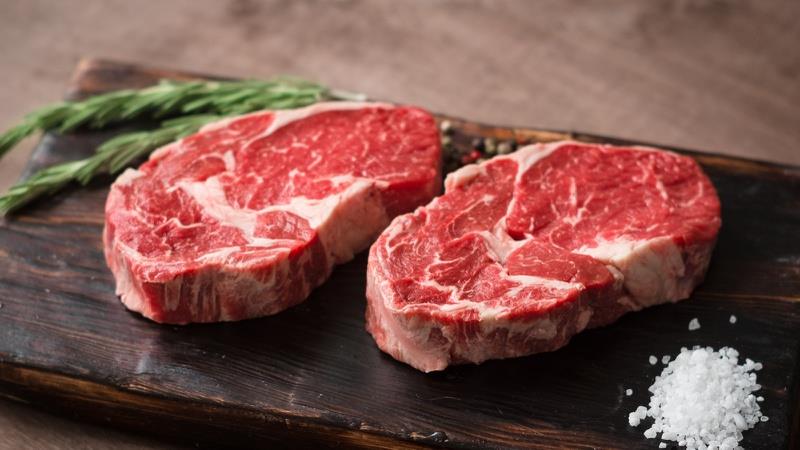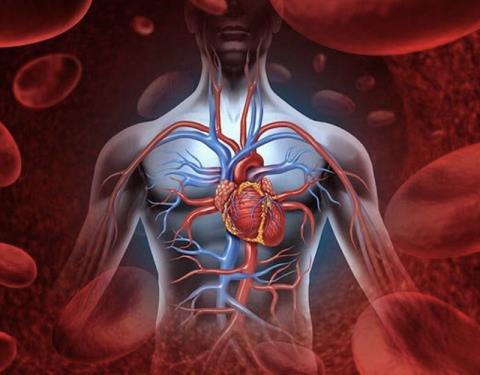There is no doubt that red meat provides essential nutrients, but a lot of scientific evidence shows that consuming red meat today can harm us, even shorten our lifespan.
Although red meat was not part of our ancestors' diets, the human body has since evolved to be able to digest and metabolize red meat. However, it remains unclear whether our bodies have evolved enough to handle the amount of red meat we now eat.
However, scientists continue to debate this topic. You may find yourself feeling better or worse after giving up red meat. See what happens when you give up red meat from animals.
You can definitely lose a few pounds if you stop eating red meat
Nutritionists say that red meat is linked to a higher risk of obesity . What is not known is whether eating red meat causes obesity, or is it a coincidence that people with obesity tend to eat more red meat. However, the fact remains that people who stop eating red meat tend to lose weight.
The results of a 2020 study published in the Journal of the American Medical Association, demonstrate that overweight people who stopped eating animal protein lost significant weight (14 pounds) in a short period of time ( 16 weeks).
 Red meat is a favorite food of many people
Red meat is a favorite food of many people
Cutting out red meat makes way for more plant-based protein
According to nutritionists, one benefit of cutting out red meat is that you can eat more phytonutrients. Phytonutrients are compounds of plant origin that are not important for sustaining life but are still beneficial to the human body.
Phytonutrients act as antioxidants, which means they protect cells from damage by free radicals produced when the body metabolizes nutrients. According to Medical News Today, scavenging free radicals can help reduce chronic inflammation, which is linked to health problems like cancer, heart disease, and diabetes .
When red meat is no longer the sole source of protein, you must find other sources to replace it. While you can swap poultry and fish, this is an opportunity to integrate more plant-based protein sources into your diet. Since red meat is high in calories compared to other protein sources, you'll not only get the chance to get a nutrient-rich plant-based protein shake, but you'll also be able to enjoy large amounts of food without increasing your calorie intake. into the body.
 Tofu is a great source of protein
Tofu is a great source of protein
Helps reduce dangerous chronic inflammation in your body
Chronic inflammation is associated with many serious and sometimes life-threatening conditions. For example, chronic inflammation is indirectly associated with the development of type 2 diabetes and cardiovascular disease . It is also directly related to obesity. Inflammation also plays a role in the development of Alzheimer's disease and some cancers.
Inflammation is the body's natural protective response to a variety of stressors. And the foods we consume can create stress, which starts the inflammatory process. That process involves the production of certain compounds known as inflammatory markers.
Scientists measure the levels of these markers in our blood to detect certain diseases, disease processes and their risks. Studies have found that people who substitute whole grains for red meat have lower markers of inflammation. In other words, when you stop eating red meat, you eliminate the source of chronic inflammation.
Your gut microbiome will be healthier
When you eat a lot of red meat, certain gut bacteria are activated to digest the nutrients in the meat. While that sounds normal and healthy, it also poses a problem, which is that one of the by-products of the digestion of red meat by gut bacteria is a compound called is trimethylamine N-oxide (TMAO). According to Harvard Women's Health Watch, higher levels of TMAO circulating throughout the body are associated with a higher risk of heart disease.
Giving up red meat is a great opportunity to reduce saturated fat consumption
The American Heart Association recommends aiming for a diet that gets no more than 5 to 6 percent of calories from saturated fat. Saturated fat comes mainly from animal sources, including red meat, which is higher in saturated fat than other forms of protein. Replacing red meat with other forms of protein can reduce your saturated fat consumption, help prevent atherosclerosis, and contribute to a healthier circulatory system.
Cutting red meat reduces the risk of heart disease
Since red meat has been linked to many conditions that increase the risk of cardiovascular disease (e.g., body weight, inflammation, plaque, and cholesterol), it's not surprising that cutting back on red meat can reduce risk of heart disease.
In fact, a 2020 study published in the Journal of the American Medical Association demonstrated that overweight people who stopped eating animal protein lost significant weight in a short period of time, and that could be an important step in improving heart health.
When you stop eating red meat, you reduce your risk of stroke
 The risk of stroke will be cut when you limit red meat consumption
The risk of stroke will be cut when you limit red meat consumption
Chronic red meat consumption significantly increases the risk of stroke . A stroke occurs when the blood supply to the brain is interrupted by a rupture or blockage, leading to the rapid death of brain cells that need blood and oxygen to live.
An ischemic stroke is specifically caused by a narrowed or blocked blood supply to the brain. Such blockages can be caused by blood clots, but are more commonly caused by the buildup of plaque in the arteries commonly known as atherosclerosis. Plaque is known to break off, and this can cause a stroke.
Since saturated fat is associated with an increase in arterial plaque buildup, and red meat contains more saturated fat than almost any other protein source, it is not surprising that people who consume less meat red is generally less likely to have a stroke.
So when you stop eating red meat, what will happen to your body ? If you give up red meat, you may give yourself a better chance of living a longer life. Based on the data collected, the researchers were able to conclude that an additional daily serving of red meat increased the risk of death by 13%. Instead of using red meat, try healthy alternative protein sources like tofu, nuts or fish for better health protection.


 Red meat is a favorite food of many people
Red meat is a favorite food of many people Tofu is a great source of protein
Tofu is a great source of protein The risk of stroke will be cut when you limit red meat consumption
The risk of stroke will be cut when you limit red meat consumption







